A Mariners’ Season To Remember, on and off the Field
National Hispanic Heritage Month is a 30-day observance that extends from September 15 to October 15 and is marked by celebrating the histories, cultures and impacts made by Americans whose ancestors originated in Spain, Central America, South America and the Caribbean. According to the National Hispanic Heritage Month website, the holiday began in 1968 as Hispanic Heritage Week under Lyndon Johnson in 1968 and was extended to a month by Ronald Reagan 20 years later.
The holiday was enacted into law in 1998. The observance began on September 15 to mark the independence days of Costa Rica, El Salvador, Guatemala, Honduras and Nicaragua. The following days mark the independence of many other Latin American countries.
This month, United Way of King County honors National Hispanic Heritage Month by spotlighting board member Fred Rivera, executive vice president of the Seattle Mariners, who recently was named as one of Puget Sound Business Journal’s Directors of the Year for 2022. He is one of two United Way board members of Latino heritage to be named Director of the Year. The other was Sandra Madrid, PhD, former assistant dean for students and community development at the University of Washington School of Law, who was spotlighted last month.
Toss the flying fish a bit higher than usual and douse those Seattle dogs with extra cream cheese and sautéed onions. The Mariners, the local Major League Baseball franchise who previously hadn’t been to postseason since Google was a toddler’s age, are in the playoffs this year as a wild card team.
The Mariners’ success has generated newfound excitement and interest in local baseball. It has also drawn attention to a franchise that has made exceptional strides in promoting racial equity, social justice and community outreach.
Leading those efforts is Fred Rivera, the Mariners’ executive vice president & general counsel, who grew up in Southern California attending Los Angeles Dodgers games with his grandmother and learned early on the relationship between pro sports and community.
In addition to overseeing the Mariners’ legal and government affairs, Rivera guides the team’s real estate business initiatives and manages several of its external functions, including community relations and the Mariners Care Foundation. He approaches his work with a passion for baseball that rivals the most ardent Mariners fan—while understanding that often pro sports franchises’ most important victories are won off the field.
“My grandmother and I would take the bus to Sears in Santa Monica, go to a little booth and get our tickets for the next couple of months,” said Rivera, a former civil rights attorney and a Santa Monica College baseball player. “That was the start of the experience—buying the tickets, the anticipation and taking the bus to the game, transferring and getting the Dodgers bus.
“In our world we think of the game experience starting when you’re looking at the schedule or you’re determining to buy season tickets and you have this anticipation,” Rivera added. “It starts there, and it continues when you are showing up in the neighborhood. The experience in that neighborhood ought to be fun, exciting and community oriented.”
To that end, Rivera says the Mariners’ community work focuses on three pillars: baseball/softball access, racial equity and social justice and being a trusted neighbor.
Let’s take the last first: Rivera said that in 2018 he was taken aback by a King County Bar Association article that noted more than 50 percent of people who were evicted eventually experience homelessness. Many were in arrears for rent and other fees totaling less than $2,000—with some being evicted after making difficult choices between paying rent or an emergency expense.
In 2019, the Mariners joined United Way of King County and the King County Bar Association in establishing Home Base, an eviction prevention program that provides financial and legal assistance to help keep families in their homes. The Mariners provided $3 million in seed money to launch the project. Since then, Home Base has been a major program in helping households seeking rental assistance.
King County turned over its rental assistance work to United Way earlier this year, and we are now disbursing $1 million a week, the equivalent of about 85 households. United Way and our partners have distributed nearly $130 million to more than 22,000 households via Home Base. More than 70% of these households are people of color.
In its racial and social justice work, the Mariners launched their Community Impact Grants initiative in 2020, investing in programs and organizations addressing the causes of racial, social and economic inequity. The team forged a partnership with the University Washington; it grants scholarships for minority business owners to participate in UW’s Minority Business Owner program, which provides support and resources.
“We’ve brought in some of those businesses as vendors at T-Mobile Park,” said Rivera. “We’re trying to increase the number of minority-owned businesses that we do business with.”
Then there’s baseball/softball access: The Mariners launched the Hometown Nine, a fellowship program that prepares young people for athletic and academic success and a future as community leaders. The Hometown Nine is a five-year commitment to nine rising eighth graders in King, Pierce and Snohomish counties.
“We want to make sure that kids in our region have an opportunity to play baseball and softball for as long as they want to play, regardless of their ability, and just love the game.”
Fred Rivera, executive vice president of the Seattle Mariners
The program underwrites fellows’ playing fees for elite baseball and softball training. In addition, each fellow is paired with a Mariners player and front office staff member, who serve as mentors. They meet quarterly to provide academic and professional guidance. As the Hometown Nine Fellows near high school graduation, they are offered such resources as college admissions preparation and essay writing support.
“We’ve brought in some of those businesses as vendors at T-Mobile Park,” said Rivera. “We’re trying to increase the number of minority-owned businesses that we do business with.”
Then there’s baseball/softball access: The Mariners launched the Hometown Nine, a fellowship program that prepares young people for athletic and academic success and a future as community leaders. The Hometown Nine is a five-year commitment to nine rising eighth graders in King, Pierce and Snohomish counties.
The program underwrites fellows’ playing fees for elite baseball and softball training. In addition, each fellow is paired with a Mariners player and front office staff member, who serve as mentors. They meet quarterly to provide academic and professional guidance. As the Hometown Nine Fellows near high school graduation, they are offered such resources as college admissions preparation and essay writing support.
Said Rivera: “We want to make sure that kids in our region have an opportunity to play baseball and softball for as long as they want to play, regardless of their ability, and just love the game.”
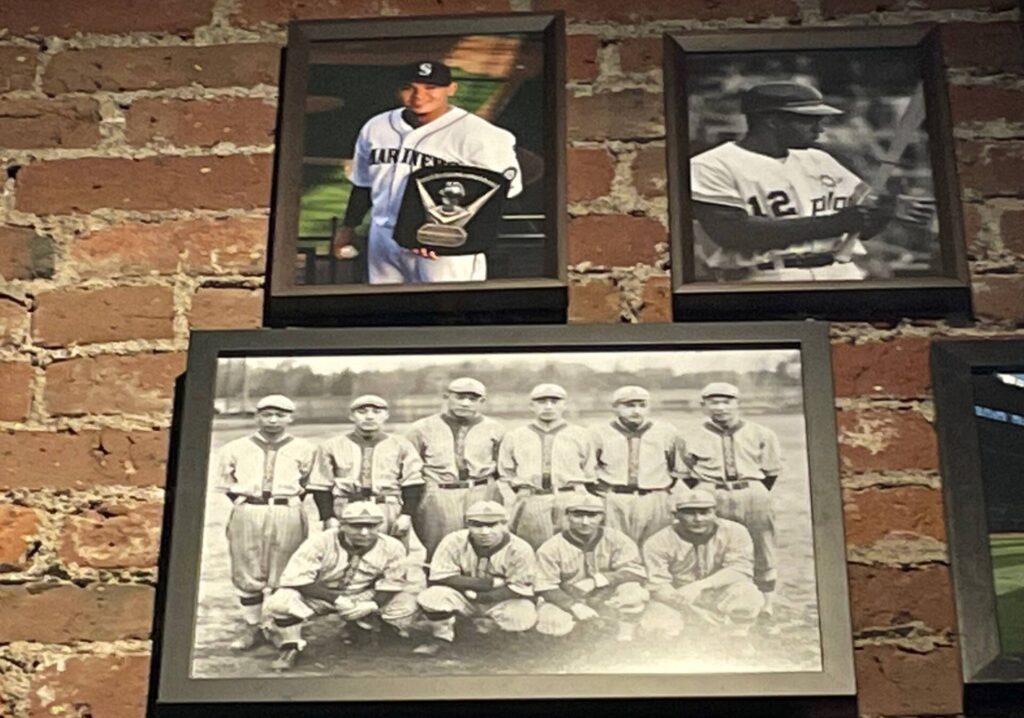
Much of that love for baseball has been bolstered by the Mariners on-field success, which has come as the region is still grappling with the effects of the COVID-19 pandemic. The Mariners are located in Seattle’s SODO area, a mostly industrial area that has seen many shops and businesses close during the pandemic.
Among those businesses was the Pyramid Alehouse Restaurant, which the Mariners reopened about a month ago as the Hatback Bar & Grille, a year-round dining and sports entertainment venue. The Hatback houses Metier Brewing Company, the state’s first Black-owned brewery. The venue also includes a section called Steelheads Alley, which pays homage to baseball teams of color, including the Negro League Seattle Steelheads, the Seattle Owls softball team and a Suquamish baseball team that played in Japan more than 100 years ago.
The Mariners’ efforts to make more impact in the community have grown as the team has developed into a postseason contender. The former has helped make the latter a season to remember.
“It’s been a lot of activity that we are very happy with. And I personally have been very happy with what we’ve been doing,” said Rivera. “Working for a baseball team in general is exciting but having the type of year we’ve had, which has been very positive on the field, has made it even more exciting, interesting and fun.”

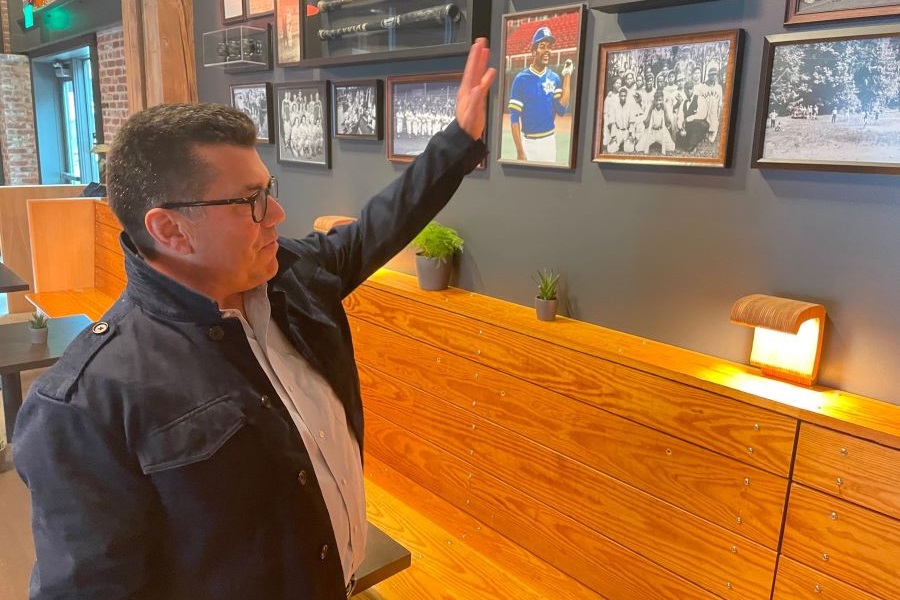
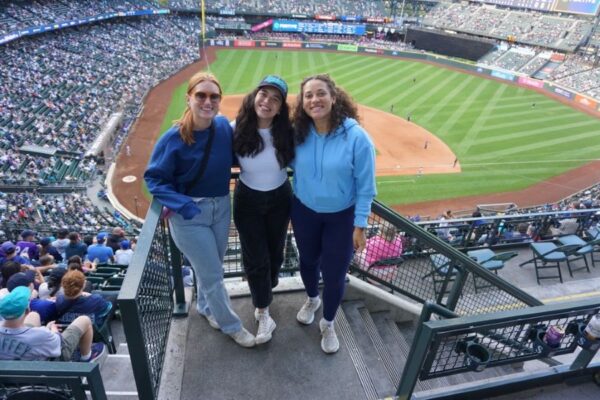
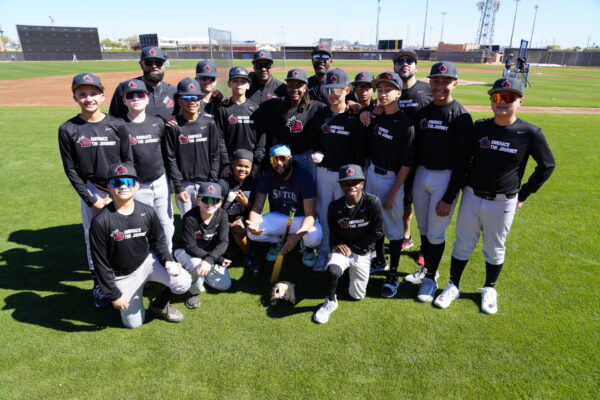
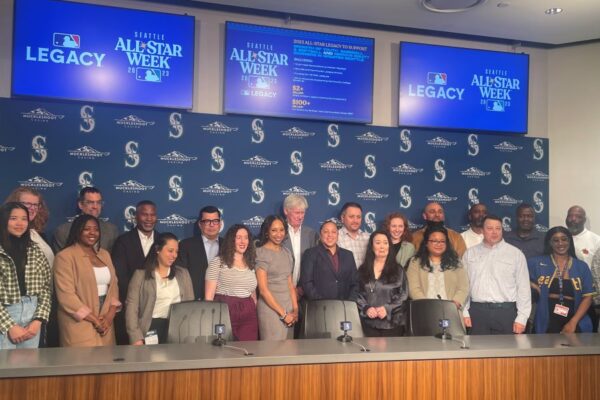
Comments